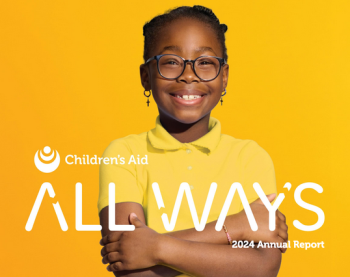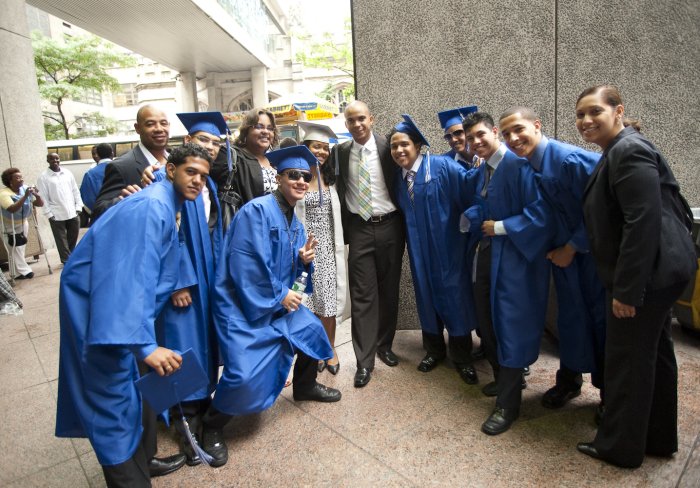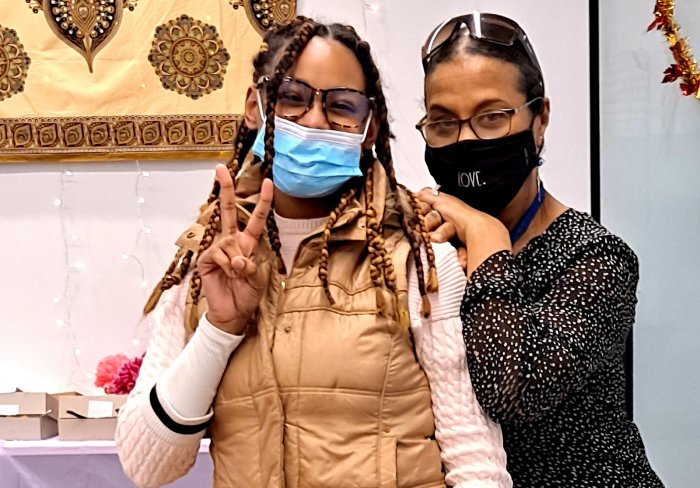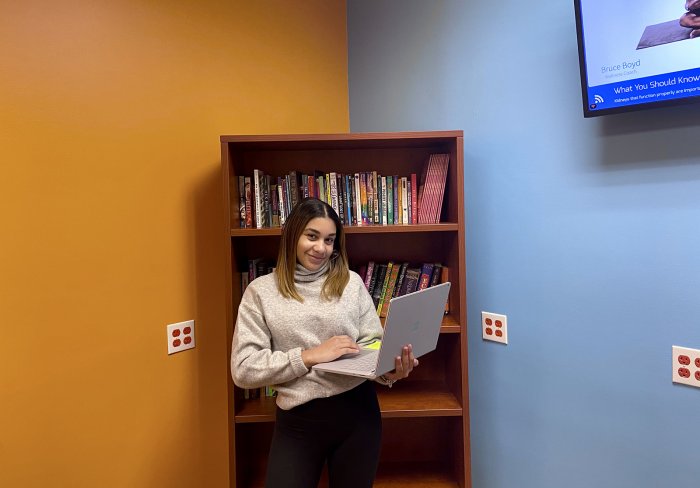Unless you’ve been in the child welfare system, you cannot imagine the challenges it brings, the sweeping uncertainty and insecurity about where you’re going to live, where you will go to school, what your future holds. The stress and anxiety those questions bring grow as children become teens and face the prospect of adulthood and the responsibilities it brings.
That’s why our First Annual Student Empowerment Luncheon, held July 17, was so powerful. The luncheon is a celebration of Children’s Aid youth connected to our child welfare and family services who have graduated from high school, are entering college, currently in college, or even considering their next step. It was also an opportunity for our youth to realize their full potential.
The young adults were asked to raise their hands if they perceived themselves as successful. Few did. Most believed they still had a long way to go before they could call themselves accomplished. Dr. Brenda Triplett, director of educational achievement and partnerships, and her team planned to tear down this belief.
For Brenda, the importance of this event is to break down silos, build trust, and to empower youth. It all comes down to connection.
“One of the things I feel is really important is connecting with our youth,” she said. “We usually talk about them, around them, above them, and about the wonderful programs that we have out there, but unless we have bodies – unless we are connecting, it’s just fluff.”
The driving force behind this connection were student voices. Coordinators invited Karina Melendez, a Children’s Aid alumna, who shared her own story of perseverance through foster care. Her childhood resonated with the room because it reminded youth of their own stories.
Karina found this event as an opportunity to stress the importance of defining your success, which to her, success is the opportunity to pay it forward. “I want to be able to talk to the kids that are currently going through what I went through myself and just let them know it is possible to succeed in any way, shape, or form that they want,” she said.
After connecting with Karina, students were asked to raise their hands once again. This time more students identified themselves as successful with the reality that they still want to accomplish more. Cordale Manning was one of these students.
Cordale, who has aged out of foster care, is one year away from graduating his digital music program at Hostos Community College. He said the luncheon gave him the confidence to move forward and finish his degree before starting a career in radio. He even thought about his own definition of success.
“Success to me looks like living your best life every day,” he said. “Every day, just feeling comfortable with the person you are or the person you turned out to be instead of the person you were is success.”







